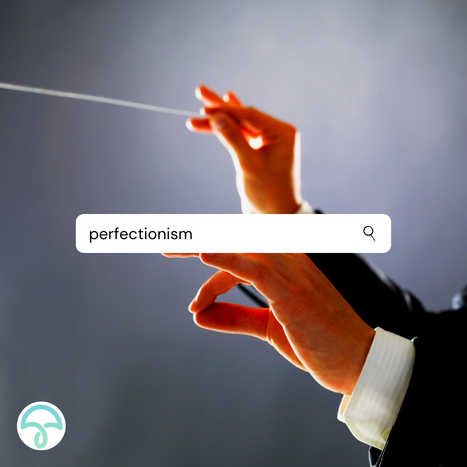Is Perfectionism Bad? 5 Things Perfectionists Struggle With Perfectionism is often hailed as a desirable trait in our society—after all, who does not want to be perfect? However, the reality is that perfectionism can actually be a double-edged sword, causing a host of challenges and struggles for those who embody it. From the fear of failure to the inability to rest and the constant striving for unattainable standards, perfectionists often find themselves battling a number of internal demons that can leave them feeling exhausted, alone, and unfulfilled. In this article, we will explore five of the most common challenges that perfectionists face, and offer tips and strategies for overcoming them.
0 Comments
Are Perfectionists Truly Confident? The Perfectionism Paradox When we meet a perfectionist we oftentimes see the image of a perfect person that is confident and has everything figured out. We tend to think that they are very successful, that they have their life together and are under control. Unfortunately, if you delve deeper into the mind of a perfectionist, you will soon realize that this is not true. Today we will uncover the paradox of perfectionism. Whether you are eager to learn more about perfectionism or you are a perfectionist yourself, I hope this article provides you with some valuable insights. Is Perfection Possible? Tips to Overcome Perfectionism As perfectionists, we tend to think that perfection is in fact something that is attainable and feasible. However, life is not that simple. The idea of perfection might just be something that solely exists in our heads, and this idea is ever-changing. One day we might think that perfection means getting our dream job, but when we actually get this job, it might not be what we wished for. So, we change our goals, and once again try to strive for this abstract concept of perfection. And, the never-ending strive for perfection continues. So, let's back up and ask ourselves: is perfection even possible? And, if it is not, then why do we try so hard to achieve it?  Perfectionism can be exhausting. Constantly trying to attain these greater-than-life expectations we have placed on ourselves can be quite tiring. And, yes, we are the ones that have placed these expectations on ourselves, most people around us do not expect as much from us. However, these feelings and expectations stem from somewhere. Perhaps people in our past did expect as much from us. So, who expected so much from us? What is the root of perfectionism? And, if it is something that we learned, is it possible to unlearn it? 9 ways that perfectionism can lead to burnout First of all, let’s clear out a really common misunderstanding. We believe that perfectionism is a healthy mindset that leads to perfect results, perfect achievements, perfect life, to perfection. However, the truth is somewhat different: perfectionism is the stress we feel in order to be perceived as perfect by others or ourselves and the exhausting effort we put in order to deal with that stress. In other words, perfectionism feels like we are not enough and we need to try more in order to become so. And when we say “try”, we mean try a lot. The Pros and Cons of Being a Perfectionist As we wrote in our previous article ‘How Much of a Perfectionist are you?’, perfectionists tend to feel that nothing they ever do is good enough; that they need to work unrelentingly in a bid to better themselves, or else there’ll be negative consequences. If a perfectionist feels he/she is not meeting the high standards they hold for themselves, they will often experience distress or inner unrest which can affect negatively their mood or result in anxiety. With this description perfectionism sounds like a really unpleasant, unwanted trait. So why do so many of us personify it? Well, as behavioural psychology tells us, everything we do is done because we believe it will be of benefit to us (or it has benefitted us somehow in the past) - and perfectionism is no different. The perfectionistic thoughts described above breed by definition an intense drive to perform well, and their continued presence in our lives can be put down to the successes and external validation (who doesn’t love compliments?!) this increased drive once brought us. What is Empathy? Empathy is our capacity to understand or feel what another person is experiencing, that is, the capacity to place oneself in another's position, considering their emotions and experiences. To get into the other person's shoes, as it is widely known. Empathy is innate to human beings and it is our neurological response to another person’s emotions. The response to what is felt by another person occurs automatically and often out of our conscious awareness. From an early age we are wired to experience what another person is feeling which provides essential learning cues and marks our successful development. How much of a Perfectionist are you?
|
Therapy |
|
